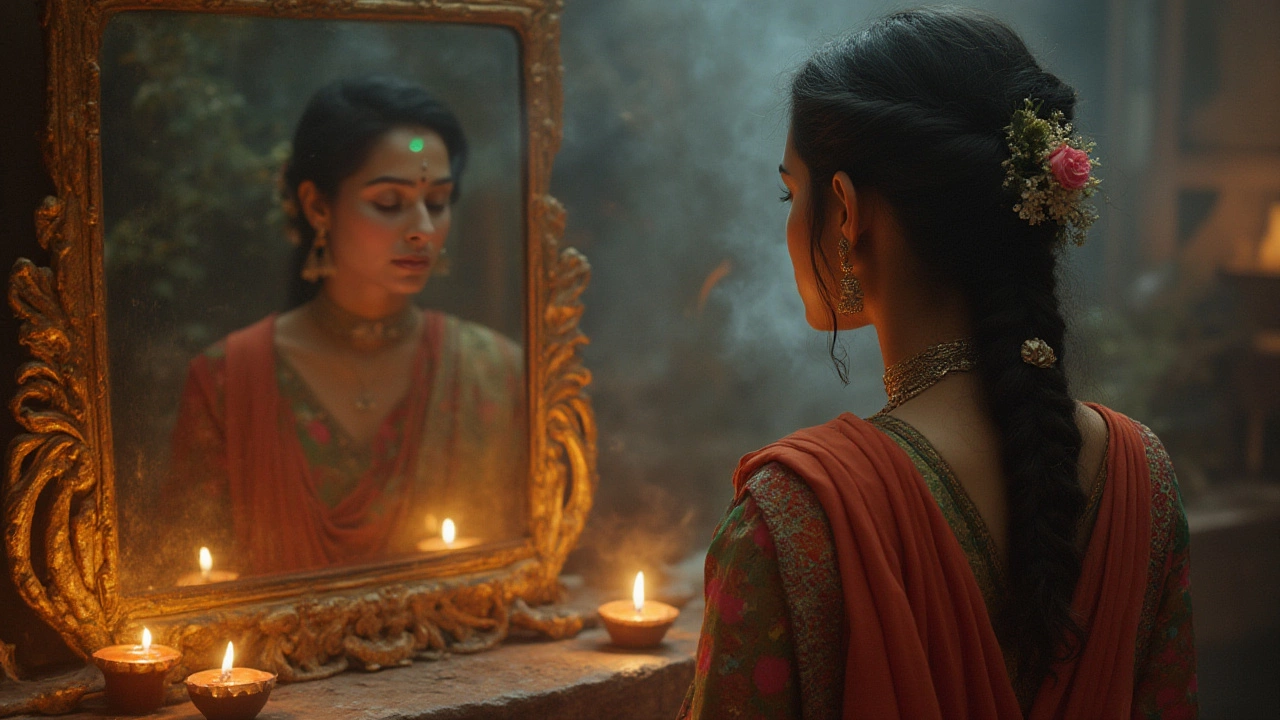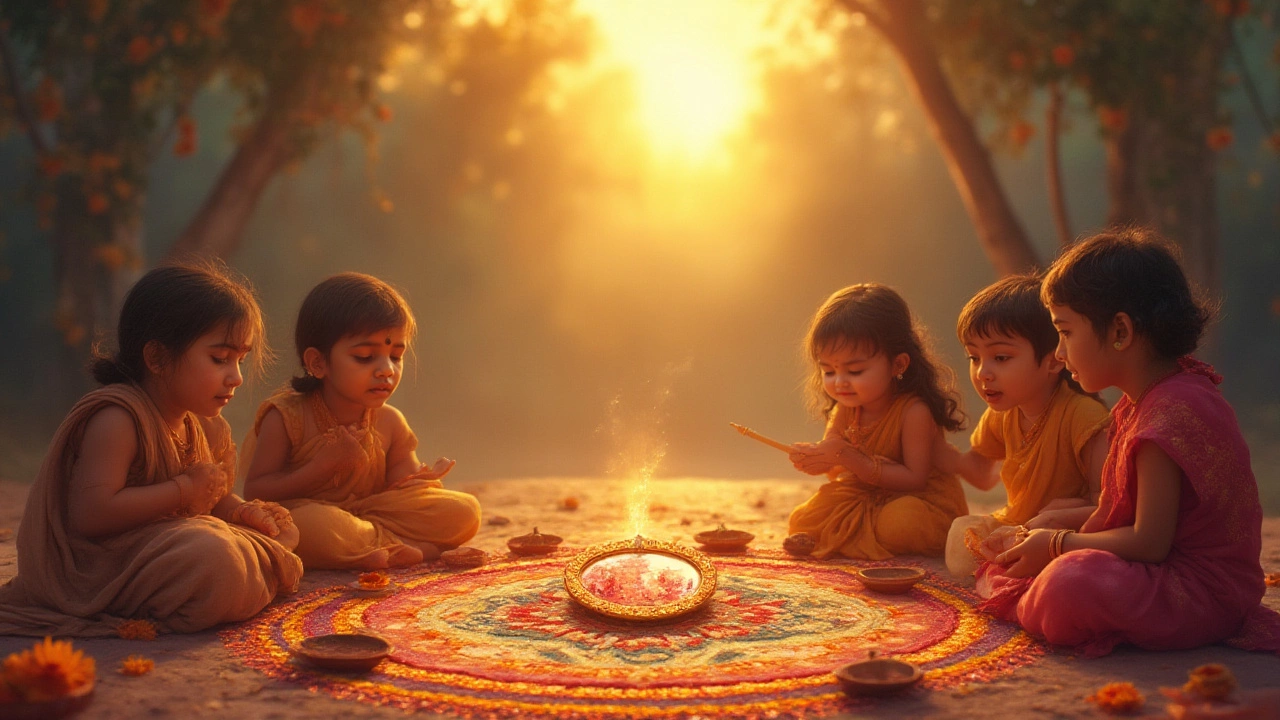Spiritual Meaning of Mirrors: What Your Reflection Reveals

Ever caught yourself zoning out in front of your own reflection, almost as if you’re peering into something deeper than just skin and bone? Mirrors have a way of pulling us in, making us wonder if there’s more going on than just checking out our hair or making sure there’s no spinach stuck between our teeth. The idea that mirrors are more than objects—maybe even spiritual portals—has been floating around for centuries. From ancient rituals to ghost stories to the very real mental shifts that can happen when you look at yourself, mirrors are tangled up with our sense of self and the mysteries of existence. Let’s dig into why these shiny rectangles have screwed with human minds for so long, and what they might actually mean for your spirit.
The Deep Roots of Mirror Symbolism
So, why did people once believe breaking a mirror could bring seven years of bad luck? Or that you should cover mirrors after someone dies? These aren’t just random superstitions cooked up by bored grandmas—they come from a powerful mix of psychology, symbolism, and a dash of fear sprinkled over the centuries. In ancient Greece, mirrors were used in "catoptromancy," a form of divination. People’d gaze into their reflections hoping to catch a glimpse of the future, or maybe a message from the gods. In China, mirrors have been thought to ward off evil spirits; some old temples still hang polished metal mirrors outside the door for just this reason. The Japanese folklore tale of Yata no Kagami is a sacred mirror representing wisdom and truth, one of three imperial regalia. Even in European folklore, mirrors were believed to be windows to other worlds, which is partly why, after a death in the house, folks covered every mirror—to keep the spirit from getting trapped.
If you unpack it, a mirror is almost too close to magic. It’s one of the only household objects that serves up what feels like an alternate version of reality, right there in your bathroom. That uneasiness—what some call the "uncanny valley effect"—might be because mirrors show us our own faces in reverse, which isn’t how anyone else actually sees us, a detail that makes some people uncomfortable after long periods of mirror-staring. Psychologist Jacques Lacan talked about the “mirror stage,” a moment when babies realize the face in the glass belongs to them; he claimed this shaped our lifelong sense of identity. That realization—that we are separate individuals, yet somehow always seeing ourselves from outside—sticks with us, filling mirrors with heavy symbolic weight.
Here’s a quick snapshot of the way different cultures have worked mirrors into their spiritual beliefs:
| Culture | Mirror Belief | Spiritual Role |
|---|---|---|
| Ancient Greece | Catoptromancy (divination) | Predicting the future, talking to the gods |
| China | Mirrors repel evil | Protects the home, wards off bad spirits |
| Japan | Yata no Kagami, sacred mirror | Symbolizes wisdom, truth, imperial power |
| Europe | Cover mirrors after death | Prevents spirits from being trapped in reflections |
| Mexico | Day of the Dead, mirror symbolism | Connecting with spirits, honoring the dead |
So, the next time you catch your reflection looking back at you with a glint you can’t quite place, maybe it’s not just trick lighting. Maybe that’s your subconscious—or something else—trying to pass along a message.
Mirrors as Messengers: The Spiritual Messages Behind Reflections
It’s easy to see why humans have always read more into the glass than just their surface appearance. Some people swear they’ve caught odd flashes, shifting shadows, or even something that looks suspiciously like an old ancestor in the bathroom mirror. Before you chalk that up to tired eyes or a guilty conscience, let’s look at how different spiritual traditions treat mirrors as messengers, not just glass slabs.
For starters, mirrors are all about reflection—literally and figuratively. In Buddhism, a clear mirror is used as a symbol for spiritual clarity and self-awareness. To see your true face, the teaching goes, is to look past the surface and glimpse your deeper nature. Zen masters would tell students to “polish their mirror,” which means clearing the dust of mundane thoughts and emotions to see truth. There’s a version of this idea in Western traditions, too. Some branches of Christianity see mirrors as a way to examine the conscience—like a tool for inner honesty. The phrase “seeing yourself clearly” becomes less about grooming and more about spiritual truth.
When it comes to practical rituals, mirrors are featured in everything from scrying (a form of fortune telling popular in Victorian times) to modern meditation techniques. For scrying, people stare into a mirror, hoping to see visions or messages from the beyond. It’s not just for séances, though. Therapists sometimes use mirror exercises to help people face social anxieties or strengthen self-esteem, because there’s something powerful about holding your own gaze. If you can look yourself in the eye and not flinch, psychology says, you might come closer to accepting—and understanding—who you are.
The idea that mirrors can reveal hidden parts of ourselves feeds into all sorts of popular beliefs and games, especially among kids and teens. Bloody Mary? The idea that chanting her name in front of a mirror might bring out a spirit is a mash-up of folklore and psychology—but underneath all that, it hints at the idea of reckoning with fear, shame, or curiosity that simmers below our conscious mind.
Want to try connecting with your own deeper self through mirrors? Here’s a basic tip: Pick a calm, quiet time—early morning or late at night works best. Stand in front of a mirror, keep your eyes relaxed, and just breathe. Notice what comes up. Some people write down their thoughts or draw what they see. Others use the mirror for affirmations, repeating positive statements while making eye contact. Even if you don’t see ghostly figures, you might be surprised by the memories or emotions that surface.

Mirrors and Personal Energy: Attracting, Deflecting, and Transforming Vibes
There’s a reason “bad mirror placement” pops up so often in Feng Shui blogs. In this system, mirrors aren’t just decoration but act as super-charged energy tools. Placing a mirror opposite your front door, for example, is said to repel good energy before it has a chance to settle in the home. Meanwhile, a mirror near your dining area? That doubles abundance, or so the wisdom goes. It’s fascinating how a simple glass rectangle can turn into a tool for either attracting or deflecting energy, depending on where and how you use it.
But it’s not just the placement. Cleanliness matters too—mirrors caked in dust are believed to distort not just your image, but also your energy. That might sound like superstition, but even modern science agrees that cluttered or dirty environments can mess with our brains and moods. The idea: If your mirror is smeared, you aren’t seeing yourself clearly. If it’s sparkling, your energy (and maybe your luck) has a chance to shine through. Why do you think athletes—and even some CEOs—have pep talks with their reflections before big games or board meetings?
Here are some practical tips for making the most of mirrors in your spiritual or energy practice:
- Keep mirrors clean and free from cracks—if they’re broken, replace them promptly. In many cultures, cracks and breaks are said to trap negativity.
- Be mindful of what a mirror reflects; avoid having them face your bed if you’re light sleeper or sensitive to energy.
- Use smaller mirrors for intention-setting, maybe writing a wish or affirmation on a sticky note and reading it off your reflection every morning.
- Try candle meditations in the evening, watching the flame in the mirror. Some say it helps clarify intention and focus.
- During times of stress or sadness, spend a few minutes in front of a mirror, taking stock of your emotions. If it feels right, encourage yourself out loud.
The power of the spiritual meaning of mirrors isn’t all in your head, either. A 2020 study from Sweden’s Lund University suggested that people who use mirror-based affirmations as part of their daily routine reported statistically significant increases in overall happiness and focus after around six weeks. Sometimes it’s as simple as seeing yourself, flaws and all, and allowing your reflection to remind you: You’re real. You’re here. And you can change.
Mirrors as Portals: The Mysterious Link to the Unseen
Of course, anyone who’s sat through a late-night horror movie has heard the idea that mirrors are portals—to other worlds, other realities, or maybe even direct contact with the supernatural. It’s not just Hollywood fueling this, though. In Brazilian spiritualist traditions like Umbanda, mirrors are sometimes used as tools during rituals to communicate with the spirit world. Psychic mediums might adopt a special "black mirror" (really just a piece of glass painted black) for scrying. There’s a whole subculture on Reddit and in books where people share stories about seeing things in mirrors they couldn’t explain—glimpses of alternate timelines, ghostly visitors, or even eerie premonitions about life events. Some skeptics write this off as imagination or optical illusion. Others swear the experience shifted their outlook on reality.
Why are mirrors such a go-to for ghost stories and the supernatural? Some folks believe mirrors don’t just show the physical—they also reveal energetic imprints. Have you ever stepped into an old haunted house, looked in a tarnished mirror, and felt a little chill run up your spine? Psychologists would say it’s your brain mapping out unfamiliar space and producing a fear response. Spiritualists argue those chills are evidence that you’re picking up on energy from the past.
If you’re drawn to the more mysterious uses of mirrors, there are some rituals you can try safely at home (just keep your expectations in check and don’t spook yourself too badly):
- Black mirror gazing: Create a calm, darkened space, light a candle behind you, and stare gently at a black mirror. Let your mind wander. Write down any thoughts, images, or feelings.
- Dream reflection: Place a small hand mirror under your pillow or beside your bed to encourage more vivid dreams.
- Ancestor connection: Some families keep an old mirror as a sort of spiritual heirloom. If you’re lucky enough to have one, take a few minutes to sit quietly, reflect, and honor your lineage.
- Energy clearing: After illness, sadness, or arguments, many cultures recommend wiping down mirrors with salt water or sage smoke to "clear out" lingering bad vibes.
- New beginnings: After moving into a new home or ending a relationship, consider getting a new mirror as a symbolic fresh start—folk wisdom claims it clears away leftover energies, making space for what’s next.
Science hasn’t uncovered concrete proof that mirrors open actual portals, but their effect on the mind and mood is well documented. Whether you see your reflection as a friend, a foe, or a blank slate, there’s something hardwired into our brains that treats mirror-gazing as a big deal. Maybe it’s about self-image. Maybe it’s something stranger. Either way, mirrors keep holding up a blurry invitation, waiting to see what—or who—we’ll find on the other side.